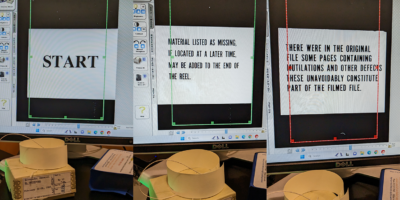by Ana Flavia Badue
When I was in college, every semester I had a crush on a different professor. I loved how they thought, how they presented themselves, how they spoke about complicated things in articulate ways. Back then, my explanation was that loving them was my strategy to learn, or I had to love them in order to better understand the course material.
Becoming a professor myself, I was surprised when a student brought me a small gift during the semester. I then started to realize that students could have a crush on me, like I had had for my professors in the past.
Recently, I told my therapist that I loved her. She said in a sincere way: “You don’t love me. You love the way you think when you are here with me.” It took me a while to understand what she was saying. But then I got it. I loved her because she was the one who facilitated my process of learning about myself. She was there while I excavated my dreams, questioned my defensiveness, fell into weird dilemmas, and experimented with new solutions. But she was also there to remind me that I did not love her. I knew nothing about her, after all, except the (wonderful!) way she works. What was there to love, then? I loved the process, I loved excavating, questioning, falling and finding ways out.
This mind-blowing revelation made me think about my past crushes for professors and the reaction I got from some of my students. I did not love them, as well as my students did not love me. Moreover, I did not have to have a crush in order to learn. It was the opposite: because some professors facilitated my learning in a creative and productive way, I loved them. Maybe I did the same for some of my students, and perhaps this is why they had crushes on me. Instructors are instruments of learning, but because learning is an abstract process difficult to pin down, the stranger who facilitates it might appear as if they impersonated the process itself.
Here we have the alchemy for a love potion: first, occupy a position from which you can support people’s growth and expansion. Then, teach in a way that learning (not teaching) is the goal. And voila! Some students will drink this potion and transfer the love for learning to the teacher. The very important point here, however, is that not everyone who effectively learns falls in love with their instructor, just because not everybody does the same movement of coupling the love for the process with the person who facilitates it. Therefore, in opposition to what philosopher Jane Gallop writes in her book “Feminist Accused of Sexual Harassment,” students falling in love for their instructor are neither a condition for learning, nor the ultimate indicator that the instructor succeeded. It is just one possible outcome. Love potions do not always have to work.
There are certainly multiple other reasons why students might fall in love with their instructors. It can be a way of dealing with difficulties, or a desire to bring the one who challenges them to a more equalitarian position, as in a refusal of a hierarchical relation. Desiring the professor might also be a desire to be what and who they are. In any case, the love students feel for instructors is, almost always, based on the teaching and learning relationship, not on the charms of the instructor’s own person.
What, then, makes us (fall in) love (for) learning? Learning makes us alive, it projects us forward, and it reminds us of our potency for living. Learning puts life in motion to its fullest realization, and it connects us to ourselves and others. I’d even say that learning is erotic in the Freudian sense, it is a drive for life, an absolute pleasurable exercise. Not liking school, then, is not a synonym for not liking learning. It rather can indicate that the institution failed to deliver the conditions for learning.
Given that some students fall in love with their teachers and professors, what are the ways of responding to that? Unfortunately, we all know cases of predatory faculty who use their power to seduce their students. But I’m more interested in thinking about those who don’t reciprocate students’ advancements, because there is something to learn here.. Spoiler alert: these cases teach us that the best love to cultivate, as instructors, is the love for teaching and learning, not the love for our own narcissistic power position.
Similarly to my students not knowing anything about myself, I know very little about them too. We meet in a very specific context, in which I make the effort to create a collaborative space where minds and hearts can grow. I love when students learn. I love the process. I might identify with certain students more than others, but I do not mistake this for the love for the process. The love for teaching, therefore, liberates me from preferring specific demographics, which are usually associated to race, class, gender, etc. I don’t love s, y or z group of students. I love when students learn. Period.
Abusive relations, harassment and the like emerge when the instructor feels more attracted to their position than to teaching. The mess consequently arises when the teacher accepts the student’s transference and “absorbs the student’s erotic energies into himself”, as philosopher Amia Srinivasan writes in her book Right to Sex.
Maybe you are thinking: isn’t the transference on both sides similar? So why is that that when a professor acts on their desires, we call it harassment? The answer is simply because of power inequalities. A professor has resources, position and power which students don’t have and they can use them to drive students into their own self-absorbed desire. A philosophy professor who fell for her graduate student and eventually married him had to find conceptual subterfuges to explore the controversial position she saw herself in.
Talking about love and teaching might sound very controversial. To appease our anxieties when affective feelings emerge in class, we usually dismiss them: they are not professional. Another way of dealing with the affective charges that electrify a classroom is to codify it into emotional labor, and demand for better wages. I agree with all these claims. But I am also willing to take affect seriously and think with it.
Crushes, on the one side, and harassment on the other, can shed light on what teaching is and what it can be. Where do we put our energies when we teach? What are we interested in? What do we love when we say we love teaching? Do I love to hear my own voice or do I love to hear my students thinking? If there is a right and a wrong way of teaching, it is based on how we channel our desire: we should love to instigate curiosity – not our students, personally. We should love to see them picking up on what we bring to class and transforming it according to their own needs and wants. We should be thrilled about making our students independent, not in making students ours.










Leave a Reply